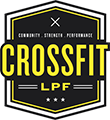What is “Pre-Workout?”
“Pre-workout” is a pill, powdered, or pre-mixed supplement drink that can be ingested approximately 30 minutes prior to exercising to boost energy. Ingredients typically include amino acids, B vitamins, glucose, nitric oxide, electrolytes, creatine, and plenty of caffeine. These components can stimulate your body by providing fuel, enhancing metabolism and blood flow, and supporting muscle function. While this can improve athletic performance, pre-workout also comes with certain risks. In this blog, we’ll discuss considerations for pre-workouts and offer alternative ways to heighten energy levels and performance. Then, you can decide if pre-workout supplements are products you’d like to purchase or pass on.
Pre-Workout Precautions
Ingredients Matter
While many pre-workout ingredients are safe for consumption and occur naturally in foods, not all pre-workouts are created equal. Some contain excessive sugars/sweeteners, high amounts of caffeine, or other filler ingredients that are not recommended. If you do decide to use pre-workout, always thoroughly read product labels and research brands before consuming.
Caffeine Intake
Pre-workouts generally contain anywhere from 150-350 mg of caffeine per serving. The U.S. Food and Drug Administration (FDA) recommends that healthy adults limit their daily caffeine intake to 400 mg maximum. Therefore, it’s important to look at your pre-workout as drinking up to three cups of coffee at once. This may not be appropriate for those sensitive to caffeine or those consuming other sources of caffeine throughout the day.
Possible Side Effects
Given the high amounts of caffeine in pre-workouts, potential side effects include (but are not limited to) racing heartbeat, feelings of anxiety or restlessness, shakiness, increased blood pressure, and gastrointestinal problems such as nausea or diarrhea. If you have any pre-existing health conditions or concerns, consult your doctor prior to taking pre-workout.
Do Not “Dry Scoop”
Powdered pre-workout is intended to be mixed with water or another liquid and then drank. Some individuals, however, chose to “dry scoop,” or dump the powder directly into their mouths without dissolving it in liquid. This is DANGEROUS and SHOULD NOT be done, as inhaling the powder can lead to choking or aspiration. Furthermore, consuming that level of caffeine all at once, rather than sipping it slowly, can interfere with your heart rhythm. This could lead to palpitations and/or a heart attack. If you chose to use powdered pre-workout, ALWAYS mix it with liquid!
FDA Regulation
Under current law, the U.S. FDA “does NOT have the authority to approve dietary supplements for safety and effectiveness, or to approve their labeling, before the supplements are sold to the public.” It is on the company that produces the supplement to ensure that its products are safe and appropriately labeled. The FDA helps regulate supplements once they are on the market, and third-party testers often conduct additional safety evaluations. The FDA recommends only taking supplements as instructed and never using them to replace prescription medicines or a well-balanced diet. Consider this all when deciding whether to use pre-workouts and be sure to research any supplement’s safety prior to consumption.
Performance-Boosting Alternatives
Sleep
The simplest way to energize yourself is to sleep. Most adults need 6-8 hours every night. This is critical to help your body recover from all that you did during the day and prepare you for all that is coming tomorrow. Also, remember that taking caffeine too close to bedtime can disrupt your sleep. Therefore, taking pre-workout (or any source of caffeine) at the wrong time may indirectly make you more exhausted! Healthy sleep habits are the first step to feeling and performing better.
Nutritious Eating
You can gain the vitamins and nutrients found in pre-workout through the foods that you eat. Having a well-balanced diet of vegetables, fruits, protein, healthy fats, and complex carbs can provide the benefits of a pre-workout without the associated risks. Timing of eating is also crucial to feeling energized. Eating before workouts provides us with the fuel necessary to exercise, and eating after replenishes all that we burned. Energizing yourself with good food might eliminate the need for additional sources.
Coffee and Tea
Coffee and tea can both be excellent sources of caffeine for those who need some help feeling awake. Risk of over-caffeination is significantly lower given that one cup of tea or coffee contains roughly 25-100 mg of caffeine. Additionally, when made at home, you can control exactly what ingredients are in your cup, as opposed to pre-workout formulas that may be hard to understand.
Creatine
A common misconception is that creatine and pre-workout are the same thing. While they are different, creatine is often included in pre-workouts as it can be beneficial in improving athletic performance. It is an amino acid naturally created by your body to fuel your muscles. To see if this might be an appropriate supplement for you, read our blog on creatine here.
Conclusion: Pass on Pre-Workout
While pre-workout can boost your energy, CrossFit LPF recommends passing on pre-workout and instead energizing with a nutritious diet. If you need help structuring your diet for optimal fueling, check out our Nutrition Program! If you do decide to take pre-workout, do your research to find a trustworthy brand that has been third-party tested. Look for those that contain standard ingredients and less than 200 mg of caffeine to avoid over-caffeination. Always follow the dosage and delivery instructions. Lastly, remember you can never out-supplement a poor diet, unhealthy sleeping habits, or lack of exercise. While pre-workout may be an appropriate source of energy for some people, every person will benefit from eating right, sleeping enough, and moving regularly.

